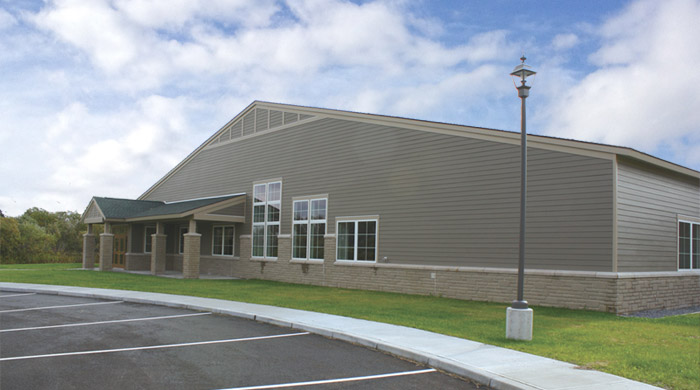Addiction Recovery Directory Littlestown PA
Home
Top Addiction Recovery Directory Littlestown PA Resources and Info
Addiction Recovery Directory Littlestown PA
With one phone call to us you can take that first step to permanent freedom from Drug Addiction; call us now for further help and assistance! Â Addiction Helper Will help you find the best treament for you or a loved one with just one telephone call. It seemed as though everything I touched turned to success.
At each Outpatient Drug Rehab facility, you’ll find a staff of helpful, compassionate, individuals eager to provide the comfort, care, and tools you need to overcome any addiction you’ve been battling, with the professionalism and confidentiality you deserve. Their drug of “choice†that stimulates the brain’s reward system can be anything, from alcohol, to food, to gambling, to tobacco, cannabis, cocaine or heroin. South American heroin is readily available throughout the state.
Much more Resources For K2 Abuse Treatment Centers

More Information About Secobarbital Detox Treatment Littlestown PA
Teen-focused treatment facilities specialize in therapies that have proven to be effective in teens. We will be able to recommend a suitable treatment programme and rehab that will meet all of your treatment needs.
Right here are Some More Resources on Dextrostat Addiction
Embed this infographic to your website
An infographic from the team at Addiction Blog
Elton John’s quotes drug addiction (INFOGRAPHIC)Even more Info Around Secobarbital Detox Treatment Littlestown PA
Any serious drug rehab should have at least some statistics on their success rates (preferably from third-party agency). And let steadfastness have its full effect, that you may be perfect and complete, lacking in nothing. If you have feelings in either direction regarding this, you will need to investigate further. Attributions of causality refer to an individual's pattern of beliefs that relapse to drug use is a result of internal, or rather external, transient causes (e.g., allowing oneself to make exceptions when faced with what are judged to be unusual circumstances). The only way out is to slay it and Joy’s not the slaying type. Criticism[edit] Despite ongoing efforts to combat addiction, there has been evidence of clinics billing patients for treatments that may not guarantee their recovery.[1] This is a major problem as there are numerous claims of fraud in drug rehabilitation centers, where these centers are billing insurance companies for under delivering much needed medical treatment while exhausting patients' insurance benefits.[2] In California, there are movements and law regarding this matter, particularly the California Insurance Fraud Prevention Act (IFPA) which declares it unlawful to unknowingly conduct such businesses.[2] Under the Affordable Care Act and the Mental Health Parity Act, rehabilitation centers are able to bill insurance companies for substance abuse treatment.[44] With long waitlists in limited state funded rehabilitation centers, controversial private centers rapidly emerged.[44] One popular model, known as the Florida Model for rehabilitation centers, is often criticized for fraudulent billing to insurance companies.[44] Under the guise of helping patients with opioid addiction, these centers would offer addicts free rent or up to $500 per month to stay in their "sober homes", then charge insurance companies as high as $5,000 to $10,000 per test for simple urine tests.[44] Little attention is paid to patients in terms of addiction intervention as these patients have often been known to continue drug use during their stay in these centers.[44] Since 2015, these centers have been under federal and state criminal investigation.[44] As of 2017 in California, there are only 16 investigators in the CA Department of Health Care Services investigating over 2,000 licensed rehab centers.[45] See also[edit] [edit] Further reading[edit] Karasaki et al.,(2013). Unfortunately, once the euphoria wears out and the withdrawal symptoms start, life is not so rosy, and the reality of addiction becomes evident. Thousands fall victim to the grips of addiction every day. Addiction is a complex and powerful disease, but with the appropriate support and faith in God, recovery is possible. Relapse prevention[edit] An influential cognitive-behavioral approach to addiction recovery and therapy has been Alan Marlatt's (1985) Relapse Prevention approach.[34] Marlatt describes four psychosocial processes relevant to the addiction and relapse processes: self-efficacy, outcome expectancies, attributions of causality, and decision-making processes.
Click Here for More Information
Previous Next
You may also like:
Subutex Addiction Treatment Programs Somers CT
Norco Addiction Clinic Pine Bluffs WY
Oramorph Abuse Treatment Clinic Potomac MD
Crc Drug Rehab Whites City NM
Propoxyphene Detox Port Alsworth AK
Suboxone Addiction Treatment Clinics Birchrunville PA
Metadate Rehab Facility Triplett MO
Opioids Addiction Treatment Clinic Scottdale PA
Steroids Rehab For Addiction Bartley NE
Norco Rehab Treatment Programs Imogene IA
Opium Addiction Detox United PA
Molly Addiction Detox Center Wells TX
Triazolam Addiction Treatment Facilities Walnut KS
Triazolam Detox Centers Verdunville WV
Peyote Addiction Treatment Facilities Randolph TX
Percocet Detox Clinic Sandston VA
Hydromorphone Addiction Treatment Facility Murfreesboro TN
Alcohol Addiction Counseling Tucson AZ
Clonazepam Addiction Rehab Wann OK
Oxycontin Rehab Center Alum Creek WV